Laser removal of papillomas is practically painless and rarely causes complications. You can get rid of a cosmetic defect in one go. But without additional drug treatment, the tumors will return.
Why do papillomas appear and why are they dangerous?
These benign lesions are caused by the human papilloma virus (HPV). They are soft to the touch and can be oblong, round or flat. The shade matches the skin or is slightly darker. The growth does not hurt when pressed, but outwardly it looks unsightly.
HPV is present in many people's bodies and does not always show itself. It is activated under conditions favorable to growth:
- promiscuous sex life;
- Hormonal imbalance;
- reduced immunity;
- urogenital infections;
- constant illnesses;
- inadequate diet.
Also, the appearance of papillomas is provoked by radiation therapy, inflammation of the body, poor hygiene, surgical operations followed by prolonged use of antibiotics. The disease affects women, men and even infants.
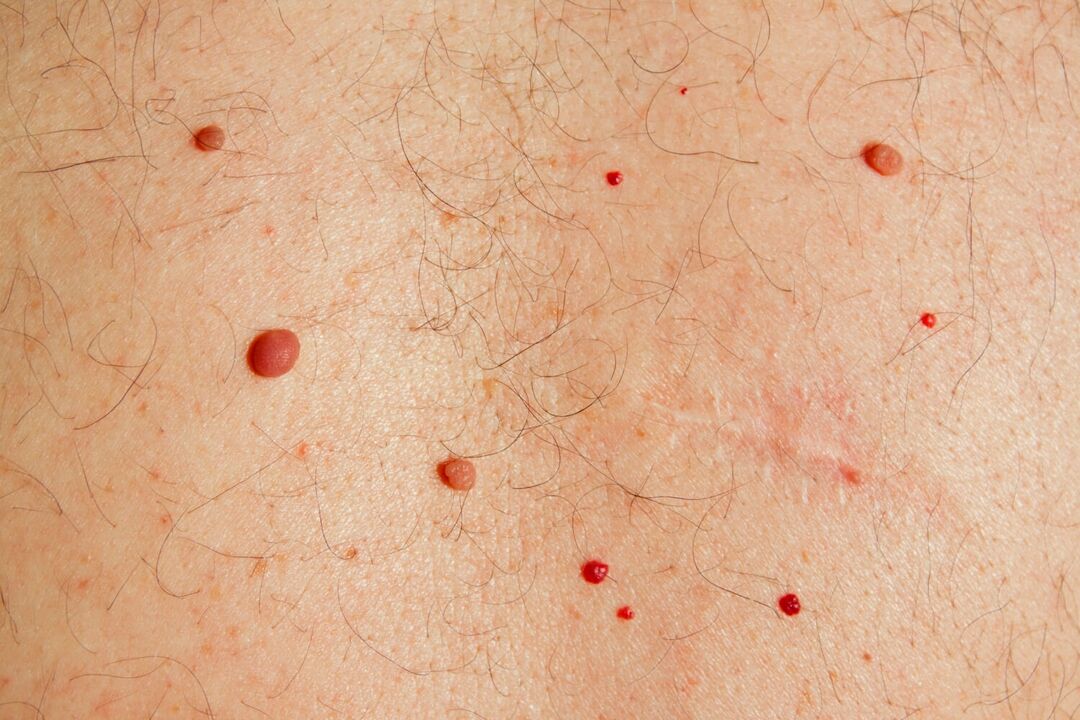
Papillomas form on any part of the body (genitals, eyelids, neck, hands, face). Growths also appear on the mucous membranes (tongue, larynx, cheek). They will not go away on their own and can develop into cancer, for example cervical cancer.
Laser removal of papillomas
The least traumatic method of removing a tumor is laser therapy. The doctor uses a device that generates radiation. In just a few minutes, it cauterizes papillomas on any area of the skin.
The beam acts precisely and does not affect neighboring tissues.
The procedure is sterile and, when done correctly, rarely causes side effects. Laser machines are equipped with a cooling tip that protects surrounding tissue from burns.
Who and when is it shown to?
The growths are most often not dangerous and are only cosmetic defects. Laser removal of papillomas can be postponed if they do not bother you.
Doctors recommend cauterizing tumors that begin to grow, bleed, and hurt. It is also necessary to eliminate papillomas located on the face, scalp and intimate area. A person constantly touches these areas and can injure the growths. If an infection enters it through the smallest cracks, severe inflammation will begin.
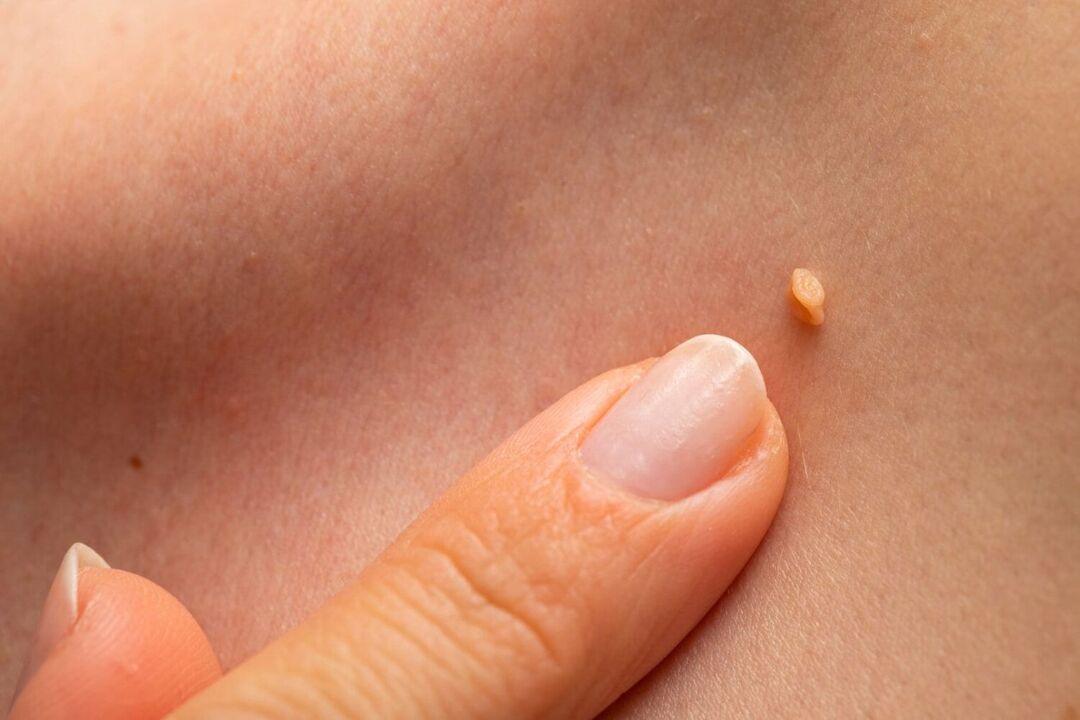
Due to the presence of the virus in the body, pathogenic cells divide uncontrollably, papillomas increase and can turn into a malignant tumor. In case of frequent relapses, dermatologists recommend drug treatment followed by laser removal of all tumors.
Possible contraindications
Before removing a tumor, the doctor takes a history to identify possible contraindications. The procedure is not carried out if:
- oncology;
- diabetes mellitus, blood clotting disorders;
- epilepsy;
- skin photosensitivity;
- high temperature, inflammatory and infectious diseases;
- autoimmune pathologies, tendency to form keloid scars.
Laser removal of papillomas on the genitals is not recommended during menstruation.
During pregnancy and breastfeeding, a consultation with a gynecologist is necessary, since local anesthesia is used during the procedure.
A dermatologist may refuse to treat a patient who has a cool tan or who has a tattoo over the area where the growth is located. Some commercial medical institutions require the advice of a pediatrician, who must authorize laser removal of the child's papilloma.
Which laser is used
Continuous and pulsed radiation equipment is suitable for removing tumors. The first option is optimal for cauterizing tumors on the body. A laser with powerful radiation instantly evaporates pathological cells. But due to intense exposure, a scar may remain.
Pulsed lasers are used to cauterize papillomas of the face, neck and hands. They act more superficially and leave no trace.
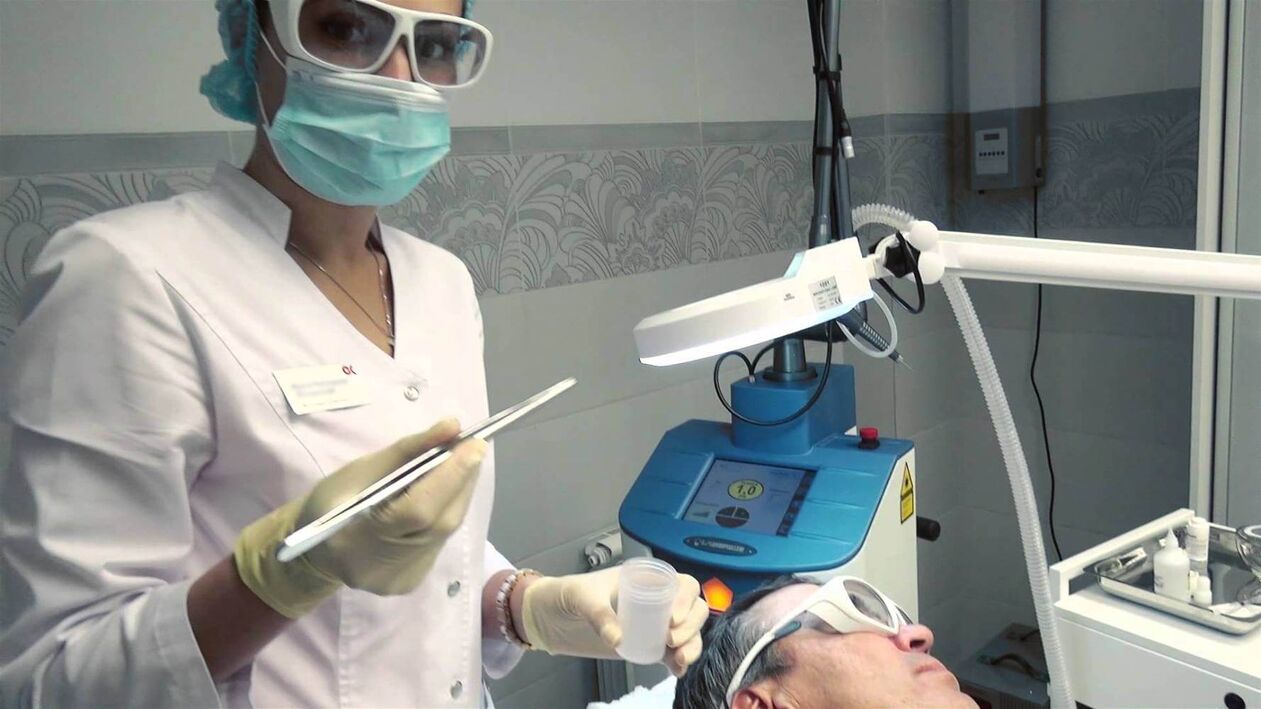
You can also perform the procedure yourself using a laser pen to remove the papilloma. This portable coagulator has 6 power settings and is USB rechargeable. The kit includes one wide needle and several disposable fine needles. But it is recommended to use the device only after consulting a dermatologist and oncologist.
How is laser removal of papillomas carried out?
The intervention protocol does not depend on the type of laser and the location of the tumor.
What you can and cannot do before the procedure
2 weeks before laser removal of papillomas, you should not sunbathe.
If the growth is on the face, exclude scrubs and chemical peels from your treatments. Try to use a minimum of cosmetic products.
Before the session, you need to take a blood test for sexually transmitted diseases, take a smear from the cervix (women) or foreskin (men). The doctor may also refer the patient for biopsy, tissue histology and PCR diagnosis. If you receive unsatisfactory tests, laser removal will need to be postponed and undergo drug treatment first.
Technical
Cauterization of a papilloma takes 1 to 3 minutes depending on its size. Before the session, the doctor examines the tumor and determines the optimal laser power. The procedure goes as follows:
- The patient wears dark glasses with light filters to protect the eyes from accidental radiation.
- The skin is treated with an antiseptic and an anesthetic ointment is applied for 15 minutes.
- The doctor points the laser tip at the tumor and evaporates it layer by layer.
- After treatment, the treated skin area is disinfected again and an adhesive bandage is applied.
A small papilloma is removed in one session. If the growths are large and located throughout the body, several procedures will be necessary. Laser ablation of tumors in children is carried out using a similar protocol.
Is it painful to remove papillomas with a laser?
Without local anesthesia, it will be painful to remove papillomas with a laser. Before the procedure, the doctor treats the skin with an anesthetic ointment or gives an injection. After that, only a slight burning sensation is felt during the session.
Before removing growths from sensitive areas (intimate zone, eyelids or sole of the foot), additional pain relief with medications is recommended.
Rehabilitation period
Healing will be quick if you follow your doctor's recommendations. The day after the session, remove the plaster and treat the wound with an antiseptic or a saturated solution of potassium permanganate.
Repeat the procedure twice a day, then apply any healing ointment to the skin.
Do not scratch or remove the scab to avoid infection. It will disappear on its own in 1 to 1. 5 weeks. Try to wet your skin less often. Take a shower, not a bath. After bath procedures, gently dry your body with a towel. If the papilloma was on the face or eyelids, do not use cosmetic products for 2 weeks.
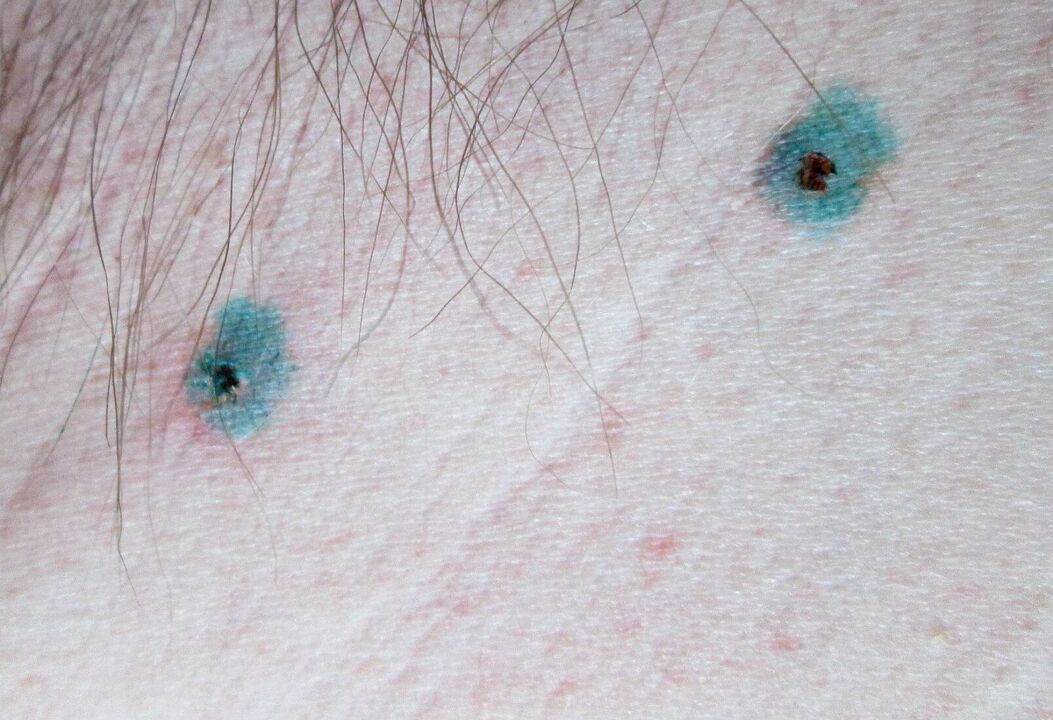
During the rehabilitation period, avoid visiting the sauna, bathhouse or swimming pool. Do not shave the treated area, rub with a washcloth, or use scrubs or other products containing exfoliating particles. If the treatment was carried out in summer, you should not sunbathe on the beach or in the solarium.
Try not to expose your skin to direct sunlight and apply a cream with SPF 30-50 before going out. Postpone physical activity to avoid causing excessive sweating. Avoid drinking alcohol.
After removal of papilloma from the genitals, it is not recommended to have sex until complete healing. Wash with intimate hygiene gel or mild baby soap. After the procedure, be sure to consult a gynecologist or urologist.
Possible complications
Complications rarely occur after laser therapy. If the doctor sets excessive power and incorrectly calculates the exposure time, the damaged area may swell and hurt. The wound begins to fester when it becomes infected due to poor hygiene during rehabilitation. Also, a consequence of the removal of large growths is the formation of keloid scars.
After the laser, papillomas may reappear in even greater numbers. This complication arises due to the intensive phase of the virus, when cauterization of the growth without additional treatment is ineffective.
Pink spots remain at the site of the removed papilloma. They will fade after 4 to 5 days and disappear completely after a few months.
Comparison of laser removal with other methods
In addition to laser therapy, papillomas are cauterized with drugs containing salicylic acid or cantharidin. After 2-3 days, the formation heals and disappears. When removing growths on the genitals, preparations containing podophyllotoxin are used. But this method is less effective and does not exclude relapses.
Surgical removal with a scalpel is also performed. Unlike laser, this method causes heavy bleeding. A scar may remain on the affected area of skin. There is also a high risk of infection in the wound.
Papillomas are removed by cryodestruction. The doctor applies a liquid nitrogen applicator to the tumor for a few seconds. The growth darkens and soon disappears. The procedure is painless, but it will not be possible to control the depth of the effect. Relapses therefore often occur.
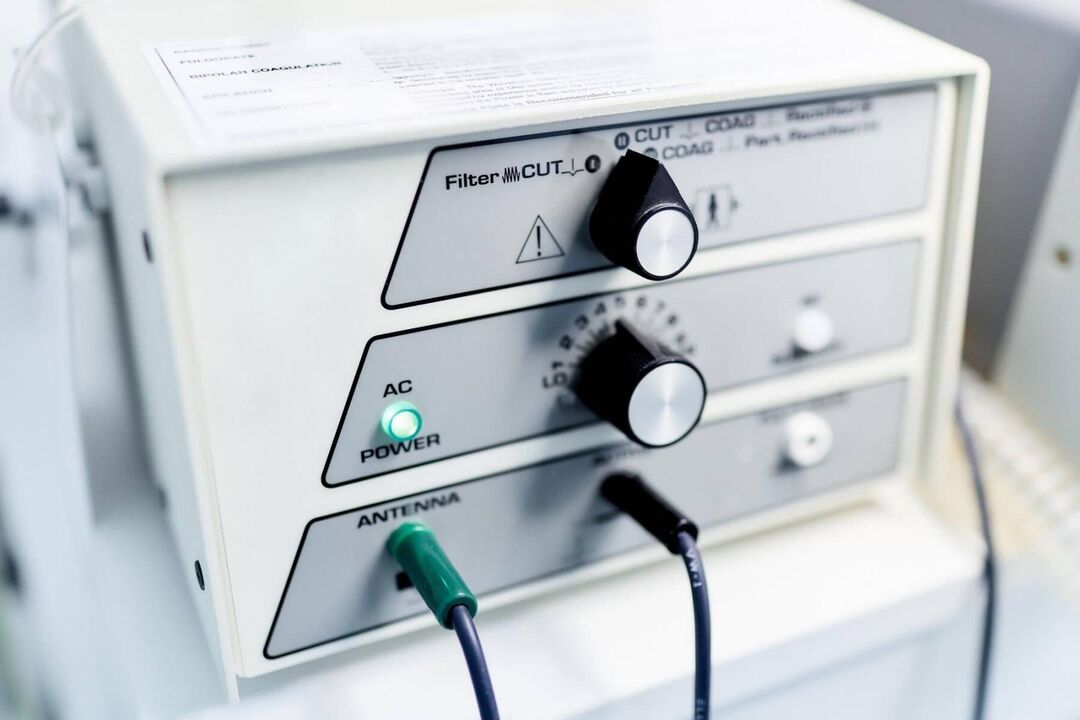
Radio wave surgery using a special device is comparable in effectiveness to laser therapy. It removes growths, leaves no marks on the body and does little damage to surrounding tissues.
Another effective method is electrocoagulation treatment. The doctor acts on the papilloma with a high-frequency electric current. During the session you can adjust the degree of impact. Bleeding and wound infections are excluded. But unlike a laser, the device injures the skin around the growth. After the procedure, pits sometimes remain.
Cost of treatment
The price for laser papilloma removal starts from $2. 5 per piece. The clinic sometimes reduces the cost if the patient cauterizes multiple growths. Treatment of the face and eyelids will cost more. Anesthesia is paid separately.
In large cities, the price for laser papilloma removal on the neck (and on other areas of the skin) is 30-50% higher.
Reviews of laser removal of papillomas
Reviews constantly appear on forums and websites of medical centers about the consequences of laser depletion of papillomas. The efficiency and speed of the procedure are noted. Thanks to the anesthesia, patients felt almost no pain, but there was a burning smell. In most cases, treatment eliminated the defect. There were no scars left and the wounds healed quickly.
But almost everyone noted that laser therapy eliminates only a cosmetic defect. This will be of no use without drug treatment against the virus.
Commentators often wonder whether it is better to remove papillomas - with nitrogen or laser. Many are inclined to the second method, because it helps the first time.























